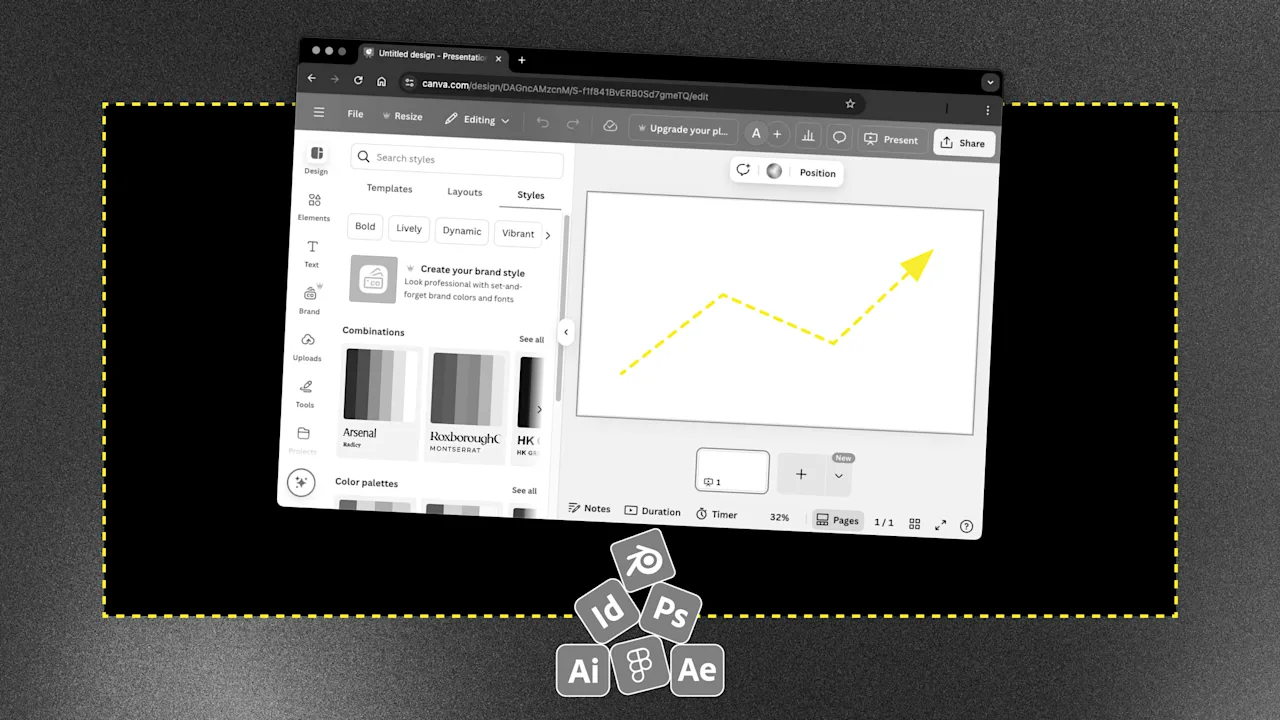Best Inventory Management Software for Retail Stores

In relation to running a retail store, effective inventory management software is crucial for success. This software helps you track stock levels in real time, integrates seamlessly with point-of-sale systems, and provides valuable analytics. Tools like Lightspeed Retail and Zoho Inventory offer features such as barcode scanning and support for multiple sales channels. Comprehending the options available and their key functionalities can greatly influence your operations and growth potential. Next, let’s explore the types of systems available.
Key Takeaways

- Consider cloud-based solutions like Lightspeed Retail for real-time tracking and flexibility for smaller retail shops.
- NetSuite is ideal for larger enterprises needing robust inventory management features and scalability.
- Zoho Inventory excels in multi-channel integration, enhancing order fulfillment and customer experience.
- Evaluate user-friendly systems like Square for simpler operations, especially for small businesses.
- Look for trial periods or demos to assess features and ensure the software meets your retail needs.
What Is Inventory Management Software?

Inventory management software serves as a crucial tool for businesses aiming to streamline their stock control processes. This digital solution helps you oversee stock levels, sales, and orders, ensuring peak inventory availability.
The best software for retail shop can be either cloud-based or on-premises, often integrating seamlessly with point-of-sale (POS) systems to improve your operations. Advanced inventory management software provides real-time analytics and automates processes, allowing you to track goods efficiently as they move in and out of your facility.
Features like barcode scanning, order management, and multi-channel integration boost accuracy and speed in managing inventory. By utilizing the best inventory management software for retail store, you can greatly reduce manual entry errors and improve overall operational efficiency, leading to better cash flow and customer satisfaction.
Types of Inventory Management Systems

When considering inventory management systems, you’ll find two main categories: on-premises and cloud-based solutions.
On-premises systems give you control over your data and infrastructure, whereas cloud-based options provide flexibility and remote access, which can be essential for modern retail operations.
Furthermore, specialized systems, like warehouse management or order management systems, cater to specific needs, ensuring that your inventory processes align with your business goals.
On-Premises vs. Cloud-Based
How do you choose between on-premises and cloud-based inventory management systems for your retail store?
On-premises systems are installed locally on your servers, giving you full control over data and security. Nevertheless, they often require significant upfront investments and ongoing maintenance, along with dedicated IT resources for updates.
Conversely, cloud-based systems are hosted on remote servers, offering flexibility and accessibility from any internet-enabled device, making them a great option for businesses with multiple locations.
They typically follow a subscription model, allowing you to pay based on usage, whereas on-premises solutions involve a one-time purchase plus maintenance.
Furthermore, cloud systems often integrate seamlessly with e-commerce platforms, enhancing your operational efficiency.
Specialized Functionality Systems
Choosing the right inventory management system for your retail store can greatly impact your operational efficiency, especially when evaluating specialized functionality systems.
These systems cater to specific needs, enhancing your inventory processes. Here are some types to evaluate:
- Barcode Scanning Systems: Ideal for high turnover, these systems enable quick product scanning.
- Warehouse Management Systems (WMS): Optimize stock organization for larger operations, improving accuracy.
- Order Management Systems: Integrate inventory with sales orders, enhancing fulfillment and forecasting.
- Multichannel Systems: Centralize inventory data across various sales channels for a holistic view.
- RFID Systems: Utilize advanced tracking capabilities, reducing manual efforts, though they can be pricier.
Benefits of Using Retail Inventory Management Software

Retail inventory management software offers numerous benefits that can greatly improve the efficiency of your store’s operations.
With real-time tracking of stock levels, you can prevent stockouts and overstock situations, enhancing your cash flow management. Automating inventory processes reduces manual errors, allowing your staff to focus on strategic tasks instead of routine data entry.
Moreover, advanced analytics features provide insights into inventory trends and demand forecasting, helping you make informed purchasing decisions and optimize inventory turnover.
Integration with point-of-sale systems and e-commerce platforms guarantees a unified view of inventory across all sales channels, improving customer satisfaction through accurate stock availability.
Finally, the scalability of modern software supports your business growth, adapting to more complex operations as needed.
Top Inventory Management Software for Retail

When you’re looking for the best inventory management software for your retail business, cloud-based solutions offer significant advantages, such as real-time tracking and easy access from multiple devices.
For instance, Lightspeed Retail provides a robust solution customized for smaller shops, whereas NetSuite caters to larger enterprises with advanced ERP features.
Furthermore, multi-channel integration is essential; Zoho Inventory shines in this area by connecting various sales platforms and ensuring seamless order fulfillment.
Cloud-Based Solutions
In today’s competitive retail environment, cloud-based inventory management software stands out as a crucial tool for businesses looking to streamline their operations and improve efficiency.
These solutions offer real-time tracking of stock levels, which helps you make timely decisions and maintain accurate inventory oversight. Popular options like Brightpearl and inFlow Inventory provide robust features customized for small- to medium-sized businesses.
Key advantages include:
- Seamless integration with e-commerce platforms
- Scalability to adapt as your business grows
- Mobile accessibility for on-the-go inventory management
- Improved flexibility in handling stock challenges
- Integration with accounting and multi-channel sales capabilities
Multi-Channel Integration
Cloud-based inventory management software lays the groundwork for an effective multi-channel integration strategy, which is increasingly crucial for retailers aiming to optimize their operations.
By centralizing inventory data from various sales platforms, you gain real-time visibility across online stores, physical locations, and third-party marketplaces.
Systems like Brightpearl and Linnworks offer robust solutions that let you manage stock levels and sales orders from a single platform.
This approach prevents stock discrepancies by automatically synchronizing inventory updates, enhancing customer experiences and reducing out-of-stock instances.
Tools like Zoho Inventory and Square for Retail streamline order management, improving operational efficiency as well as minimizing manual entry errors.
These systems are likewise scalable and flexible, adapting to your evolving retail needs while maintaining a holistic view of stock levels.
Key Features to Look for in Inventory Management Software

Choosing the right inventory management software is crucial for retail stores looking to optimize their operations and improve profitability. Here are some key features to evaluate:
- Real-time inventory tracking: This guarantees accurate stock levels and timely reorder alerts, preventing stockouts and overstock.
- Seamless POS integration: Centralizes inventory data across multiple sales channels, enhancing operational efficiency.
- Advanced reporting and analytics: Fundamental for comprehending inventory performance and making informed purchasing decisions.
- Barcode scanning functionality: Streamlines stock management processes, reduces manual entry errors, and improves tracking efficiency.
- Scalability: Opt for systems that adapt to increasing inventory needs and integrate new features as your business expands.
Prioritizing these features will help you find software that meets your retail needs effectively.
How to Choose the Right Inventory Management Software for Your Business

How can you effectively determine which inventory management software aligns with your retail business needs?
Start by evaluating your business size and operational complexity, deciding between a simple system like Square or a robust solution like NetSuite.
Next, assess how well the software integrates with your existing tools, such as POS systems or e-commerce platforms, to guarantee smooth data synchronization.
Consider vital features customized to your retail requirements, such as barcode scanning or multichannel support.
Look for scalability options that can adapt to your future growth and changing inventory needs.
Finally, review the pricing structures and available plans, confirming the software fits your budget during offering critical features like real-time tracking and automated reporting.
Frequently Asked Questions

What Is the Best Inventory Management Software for Small Businesses?
When choosing the best inventory management software for small businesses, consider options like inFlow Inventory for real-time tracking, Brightpearl for workflow automation across sales channels, and Zoho Inventory for seamless e-commerce integration.
Odoo offers customization and scalability, whereas Katana specializes in production management for manufacturers.
These solutions provide crucial features like reporting, order fulfillment, and integration capabilities, helping you streamline processes and improve efficiency in managing your inventory effectively.
How to Manage Inventory in a Retail Store?
To manage inventory in your retail store, start by implementing a robust system that tracks stock levels and automates purchase orders.
Utilize barcode scanning for accuracy and efficiency during stock movements. Set reorder points to receive alerts for low-stock items, preventing shortages.
Regularly conduct audits to compare physical stock with system records, minimizing errors.
Finally, use data analytics to forecast demand, helping you optimize stock levels and make informed purchasing decisions.
What Software Does Walmart Use for Inventory Management?
Walmart uses a proprietary inventory management system called Retail Link. This software gives suppliers real-time access to inventory levels and sales data, optimizing stock levels to reduce both overstocking and stockouts.
It integrates with Walmart‘s supply chain operations, ensuring efficient restocking and distribution. Furthermore, Retail Link employs RFID technology for improved inventory accuracy and supports demand forecasting to adjust inventory based on sales trends and seasonal changes effectively.
Which Inventory Management System Is Best?
Choosing the best inventory management system depends on your specific needs.
For small businesses, Lightspeed Retail offers a solid blend of POS and inventory management, whereas Square for Retail provides a cost-effective starting point with its free plan.
If you need multi-store management, Vend POS is adaptable and user-friendly.
Zoho Inventory thrives in multi-channel sales, and for larger enterprises, NetSuite delivers extensive ERP solutions, ensuring real-time visibility and effective demand planning.
Conclusion

In summary, selecting the right inventory management software is vital for optimizing your retail operations. By evaluating your business size, budget, and necessary features, you can choose a solution that meets your specific needs. Tools like Lightspeed Retail and Zoho Inventory offer valuable functionalities such as real-time tracking and barcode scanning, which improve accuracy and efficiency. With the right software, you can streamline processes, reduce discrepancies, and eventually focus on growing your business effectively.
Image Via Envato
This article, "Best Inventory Management Software for Retail Stores" was first published on Small Business Trends
What's Your Reaction?
 Like
0
Like
0
 Dislike
0
Dislike
0
 Love
0
Love
0
 Funny
0
Funny
0
 Angry
0
Angry
0
 Sad
0
Sad
0
 Wow
0
Wow
0


























































































